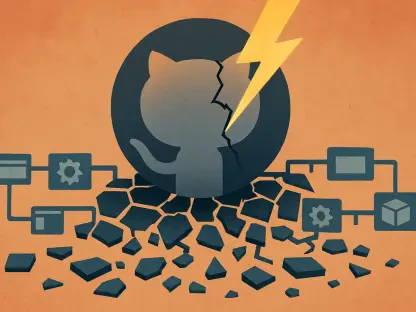Decentralized Physical Infrastructure Networks (DePIN) are transforming conventional infrastructure systems by integrating the secure, transparent nature of blockchain, providing an innovative, decentralized alternative to classic centralized services. This shift is crucial for making essential services more accessible, reducing costs, and enhancing user autonomy. With a rapidly growing presence and substantial market valuation, DePIN is establishing a new paradigm where infrastructure is not just passive but a dynamic, interactive platform focusing on security, efficiency, and the needs of its users.
The Rise of DePIN
DePIN’s swift ascent within today’s tech-driven world signals a significant change in the delivery and management of infrastructure services. The sector’s impressive market capitalization underscores its potential to redefine various industries like Wi-Fi, transportation, and energy, prioritizing transparency and decentralization to meet the demand for reliable and agile infrastructure.This market evolution challenges the dominance of established tech giants and is especially appealing in areas stifled by censorship and restrictive policies. By utilizing blockchain, DePIN champions the idea of infrastructure as a community asset, promoting broader participation and equitable distribution of benefits.
Democratization and Cost Reduction through DePIN
DePIN’s transformative power also lies in its ability to democratize infrastructure ownership. This decentralization offers a chance to revise traditional cost structures, leading to a more inclusive digital ecosystem where participants are both contributors and beneficiaries, breaking down economic and geographical technology barriers.Shann Holberg of Lunar Strategy highlights DePIN’s potential to reduce operational costs and enhance scalability. This perspective solidifies DePIN’s promise to deliver advanced technological solutions to previously unreachable areas, fostering a globally inclusive tech landscape.
Innovating Key Infrastructure Segments
Within the clean energy sector, Rowan Energy leads with a blockchain-based system encouraging renewable energy generation, marking a decisive step towards sustainability. This demonstrates DePIN’s broader commitment to social and environmental responsibilities, significantly impacting the planet’s future.
Enhancing Connectivity and Data Storage
The Helium Network exemplifies DePIN’s innovative take on connectivity, using cryptocurrency incentives to promote network expansion, reflecting the DePIN’s ethos for progressive change. Similarly, Filecoin presents a shift in data storage with its decentralized cloud service alternative, bolstering data security and potential for technologies like AI.These projects represent DePIN’s commitment to improving future technologies by channelling principles of security, efficiency, and access. Helium and Filecoin are at the forefront of leveraging cryptocurrency rewards within their service models, reshaping our understanding of connectivity and data management.
DePIN’s Long-term Promise for Blockchain Implementation
Arthur Hayes of BitMEX underscores the strategic importance of decentralized storage, especially for AI development. DePIN’s significance goes beyond infrastructure—it acts as a defense against the weaknesses of central data repositories. By adopting a more distributed approach to data management, DePIN aims for higher resilience against system failures and security infractions.DePIN marks the beginning of an era where essential systems merge digital and physical realms. It promotes a sustainable, access-oriented model powered by community participation. Looking forward, DePIN’s influence on decentralized technology adoption may redefine the foundations of our digital and physical existence, paving the way for a more connected and equitable society.









